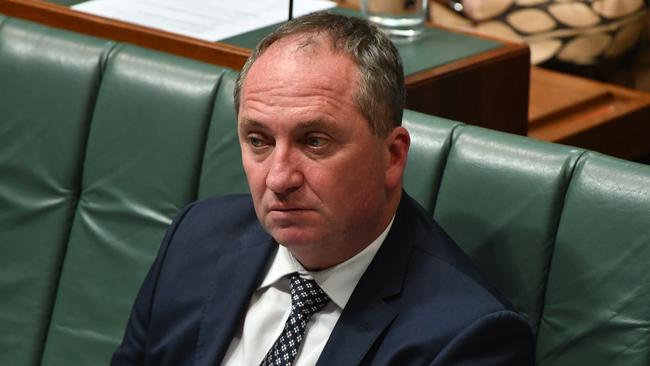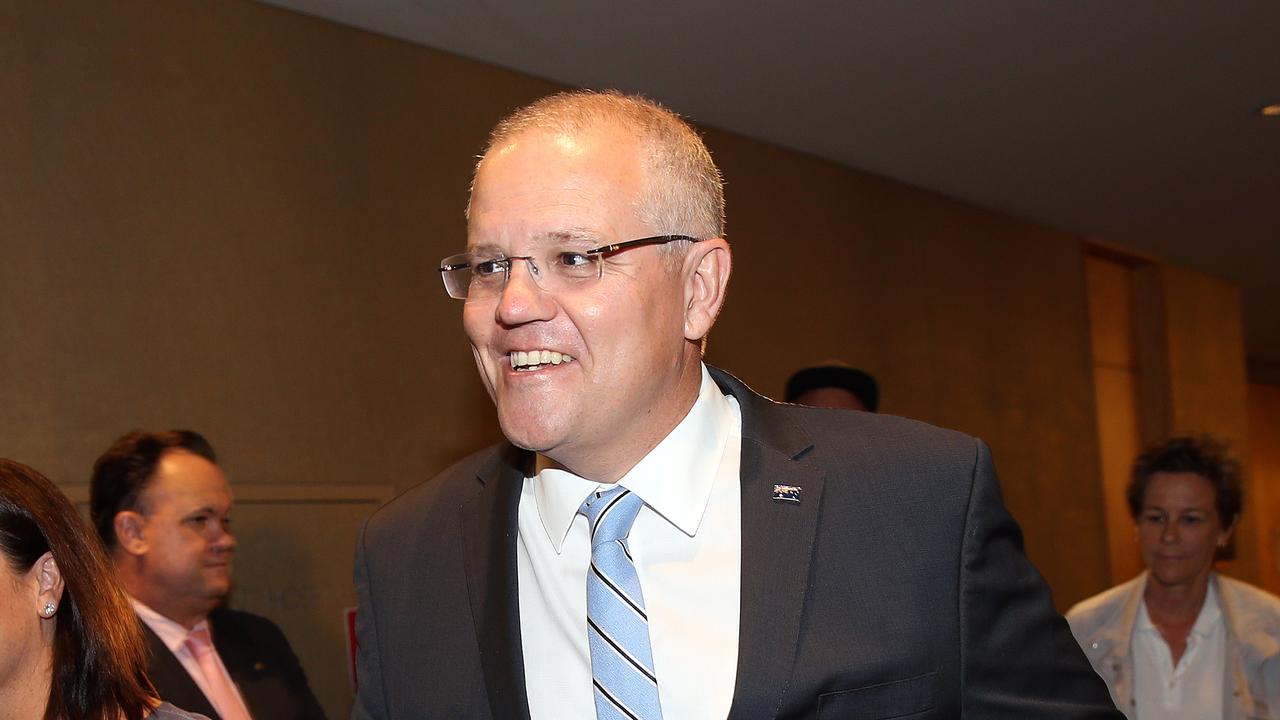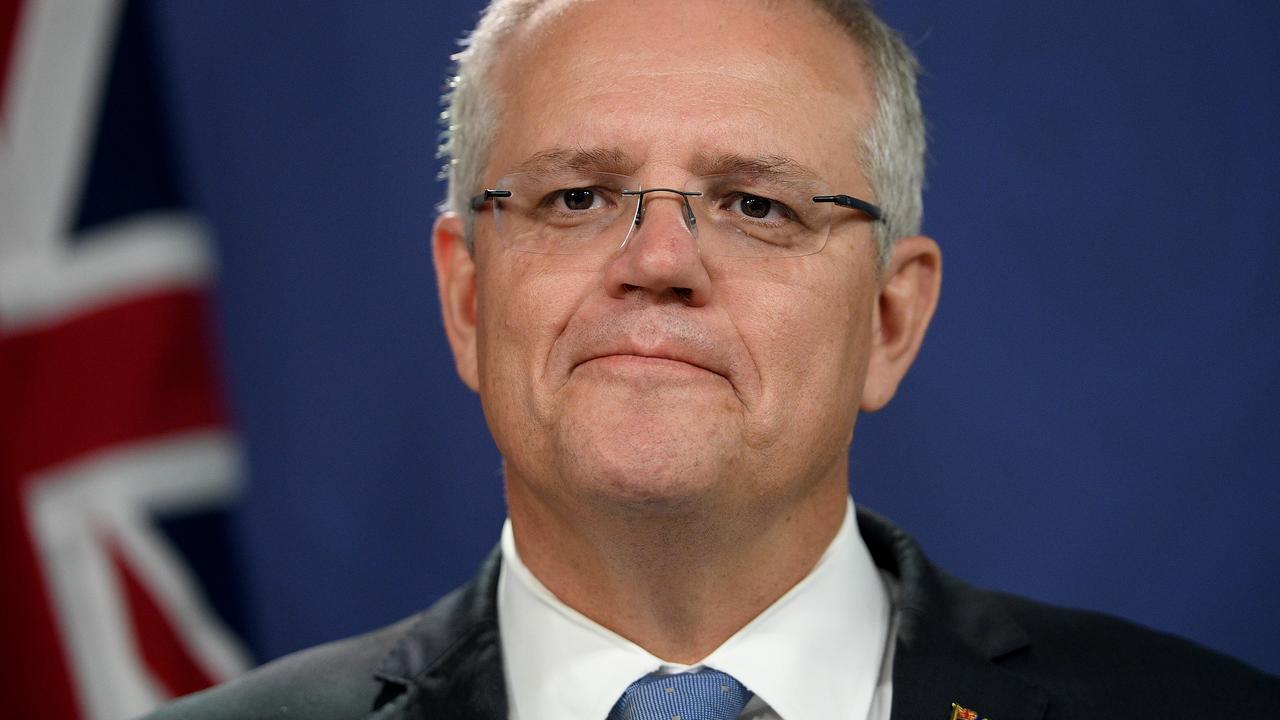
Here is a warning to public figures, especially politicians, in Australia: if there is something in your private life which would interest the public, someone will publish it and claim an argument of public interest.
Here are a couple of other warnings: always assume the worst will be published and don’t believe the myth that Australian media reporting is substantially less prurient, judgmental or intrusive than the American media.
Finally, rest assured that when a politician’s embarrassing personal secret is published, there will be a completely contradictory stream of criticism for the Canberra press gallery (as a whole and as if it has a single mind) for either publishing “private” material or for having previously hidden it as part of a matey, elite conspiracy.
And here is some advice for my colleagues on both sides of all the arguments: stop resorting to erroneous, sanctimonious and self-serving critiques which deny reality in an attempt to vilify or defend the journalists and media outlets that are responsible for the latest “scandal”.
The brutal reality for Barnaby Joyce is that his scrambled private life was always going to be made public, and stonewalling on the basis that it was private instead of managing the disclosure to ensure minimum distress was a mistake. It was Joyce’s choice.
This isn’t a justification for the publication of the Deputy Prime Minister’s relationship with a former staffer — a decision I agree with in principle — but just the reality that politicians have to deal with, and it’s a reality that isn’t going to change for all the high-minded moralising on both sides.
A combination of no clear guide outside legal avenues on privacy versus the public interest, no agreement or consistency within the media and politicians’ desire for publicity effectively means anything, no matter how embarrassing or stressful, will be published, justified and automatically become public property with no statute of limitations.
Politicians use the media and their families, friends, extended families and even their children for positive publicity and political kudos. The smart ones have long realised it is better to get dubious personal behaviour out into the public in as controlled a manner as possible — as Bob Hawke did early in his career.
What’s more, despite spurious claims that have been made for decades that the Australian media isn’t as bad (or good) as the US media in reporting on politicians’ private lives, the simple case that the worst will come out has held for decades.
Off the top of my head I recall stories about John Gorton going to the US embassy “under the influence of drink” with a teenage journalist, Geraldine Willesee, and his 22-year-old private secretary, Ainsley Gotto, who was a magnet for innuendo.
Of course there was Jim Cairns’ relationship with Junie Morosi during the Whitlam government which was revealed on the ground it was destabilising Labor and was denied and successfully pursued for defamation. Thirty years later, Cairns admitted there had been an affair, so in the 1970s, before mobile phone cameras, Twitter and Google, the media was reporting on political sex scandals despite the onerous defamation laws and lack of US freedom-of-speech protections.
But every time a controversial decision to publish private material is made — as was the case last week with The Daily Telegraph’s front page revealing Joyce’s expected baby with a former staffer — the same shock and horror is expressed, the same justifications are made and same shibboleths paraded.
Instant commentary regurgitating old misconceptions, parading prejudices, moral outrage, self-serving arguments and real personal hurt won’t change a thing. All will be rolled out after the next outrage. There certainly won’t be US-style legislation passed last week banning members of Congress from having sex with their employees.
As Malcolm Turnbull said on Friday: “Adults, particularly elected officials, members of parliament, ministers, all have to be accountable for their actions. As grown-ups we are all accountable for our actions and the relations between consenting adults is not something that normally you would be justified in seeking to regulate.”
The Telegraph front-page story last week headed “A bundle of Joyce”, with a photograph of former News Corp journalist and Joyce staffer Vikki Campion, publicly confirmed the Deputy Prime Minister had a new partner who was having a baby in April. Joyce had previously publicly announced he had separated from his wife, Natalie, and had been the subject of rumours, veiled stories and Twitter attacks about the relationship for months.
The publication of the story and photograph sparked a furious debate on media ethics and the politics of privacy. It was the photograph, obtained after extensive resources outside Canberra were deployed to substantiate the story, that deserved most critical attention.
Joyce couldn’t “fathom why basically a pregnant lady walking across the road deserves (the) front page”, denied there had been any misuse of public funds and said: “I don’t know what the political purpose is to that.”
Certainly Labor MPs didn’t seek political advantage and Coalition MPs decried the publication and rejected the Telegraph’s argument of the “public interest”. With so many MPs having failed marriages and all feeling the pressures of political life from long separations, travel and microscopic scrutiny, no politician was prepared to cast the first stone.
Hence, the debate about whether the Joyce story should have been published was conducted in the media, with the central arguments being either that as long as there was no financial or sexual abuse it was a private matter or that simply because Joyce was Deputy Prime Minister and had a relationship with a staffer made it a matter of public interest.
There are inconsistencies galore on both sides in how these arguments have been applied in the past. Some previous marriage breakdowns such as Kim Beazley’s and Bill Shorten’s received no intrusive coverage, while the disclosure that then Liberal leader John Hewson had left his family on Christmas Eve became a damaging political issue.
In 1998, as Labor leader, Beazley used the argument that Australian politics “had been blessedly free of these sorts of lies and innuendo about personal life” to defend former Australian Democrats leader Cheryl Kernot from disclosures she had lived with a former student and claims she had an affair with Labor minister Gareth Evans as she defected to the ALP. Five years later, press gallery veteran Laurie Oakes revealed emails showing Evans had lied to parliament about the affair and Kernot had left it out of her biography.
If you publish and be dammed, just be prepared to be damned. And the same applies if you’re a politician who transgresses. That’s the reality.







To join the conversation, please log in. Don't have an account? Register
Join the conversation, you are commenting as Logout